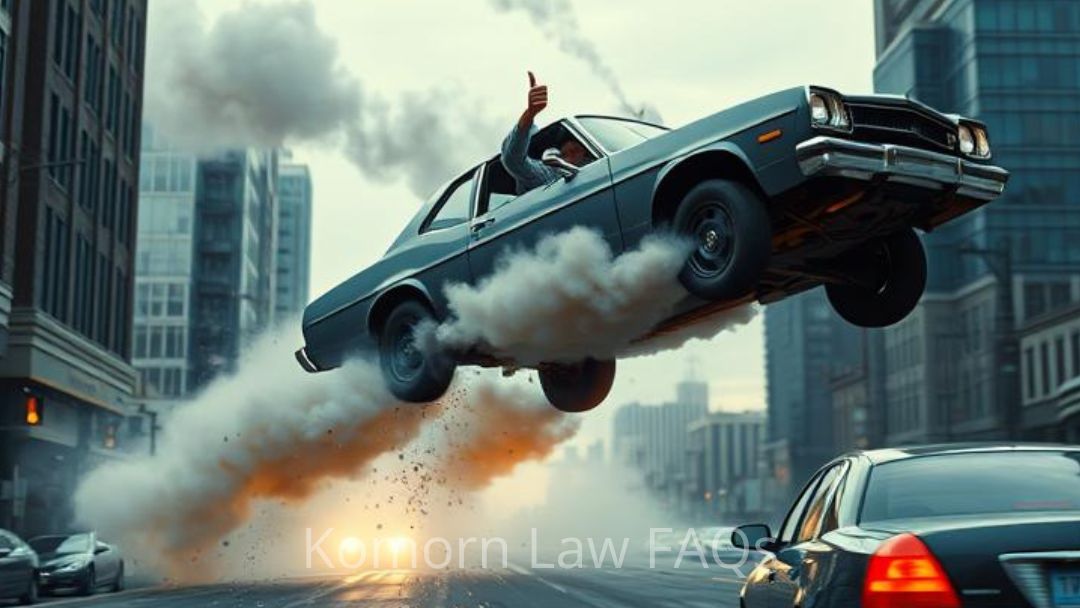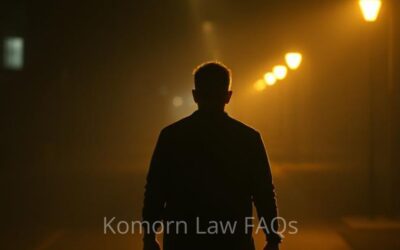Michigan Criminal Laws FAQs Traffic OffensesAccording to Michigan State Law (Michigan Compiled Laws - MCL), Traffic Offenses encompass a wide range of violations related to the operation of motor vehicles on public roads and highways. These offenses are primarily...

Qualifying for a Public Defender in Michigan
In Michigan, individuals charged with a crime have the constitutional right to legal representation.
In Michigan, individuals charged with a crime have the constitutional right to legal representation. For those unable to afford a private attorney, the state provides public defenders to ensure fair legal proceedings. Eligibility for a public defender is primarily determined by assessing the defendant’s financial status to establish indigence.
Defining Indigence in Michigan
Under Michigan law, a defendant is considered indigent if they cannot secure qualified legal representation without enduring substantial financial hardship. Several criteria are used to evaluate this status:
-
Public Assistance Recipients: Individuals receiving benefits such as food assistance, Temporary Assistance for Needy Families (TANF), Medicaid, disability insurance, or residing in mental health or substance abuse facilities are presumed indigent.
-
Income Threshold: Defendants earning less than 140% of the federal poverty level are presumed indigent.
-
Incarceration Status: Those currently serving a sentence in a correctional facility are presumed indigent.
If a defendant doesn’t meet these presumptive criteria, they may still qualify for a public defender through a detailed assessment. This evaluation considers the seriousness of the charges, monthly expenses, and local private attorney rates to determine if hiring private counsel would cause substantial financial hardship. The goal is to ensure that all defendants have access to adequate legal representation, regardless of their financial situation.
6th Amendment
In Michigan, individuals who are unable to afford legal representation have the right to receive a court-appointed criminal defense attorney. To initiate this process, they must submit a statement outlining their financial circumstances when requesting an attorney through the Michigan Courts.
Process for Obtaining a Public Defender
To request a public defender in Michigan, defendants should follow these steps:
Application Submission: During the initial court appearance, inform the judge of the need for a public defender. The court will provide an application form requiring detailed financial information.
Financial Assessment: Complete the application honestly, detailing income, assets, and expenses. This information helps the court determine eligibility based on indigence criteria.
Court Review: The judge reviews the application to decide if the defendant qualifies for a public defender. If approved, an attorney from the public defender’s office or a court-appointed private attorney will be assigned to the case.
It’s important to note that defendants cannot obtain a public defender before their first court appearance. Therefore, it’s crucial to request one promptly during this initial hearing.
Are Your Constitutional Rights Threatened?
Call Our Office
Komorn Law (248) 357-2550
Role and Expertise of Public Defenders
Public defenders in Michigan are licensed attorneys employed by the state to represent indigent defendants. Despite common misconceptions, many public defenders are highly skilled and experienced, often handling a wide range of criminal cases. However, due to limited state budgets, public defenders frequently manage heavy caseloads, which can impact the amount of time and resources they can dedicate to each case.
For defendants who do not meet the indigence criteria or prefer private representation, hiring a private attorney is an option. Private attorneys may have more flexibility and resources to devote to a case, but their services come with associated costs.
Sources of Information
Michigan Indigent Defense Commission (MIDC): The MIDC was established by the Michigan Indigent Defense Commission Act of 2013 and sets the standards for indigent defense services in the state. More information can be found on their official website.
Michigan Legislature: The Michigan Legislature’s website provides the legal framework for indigent defense services, including the MIDC Act and related statutes.
Federal Public Defender: Various legal resources and defender offices in Michigan offer additional information on public defender qualifications and services.
Other Posts
Sometimes our posts provide a general overview of things with opinionated sarcasm and dry humor by the writer to lighten the same old same old of other law sites. It does not substitute for legal advice. Anyone charged with a criminal offense should consult an attorney for specific legal guidance. BTW. True Fact: When Michael Komorn fights the justice system there is only one focus. You and your rights.
Recent

Criminal Law FAQs – Traffic Offenses

Criminal Law FAQs – Drunk and Disorderly
Michigan Criminal Laws FAQs Drunk and DisorderlyAccording to Michigan State Law (Michigan Compiled Laws - MCL), there isn't a specific statute that solely defines "Public Drunkenness" as a statewide criminal offense in the same way some other states might have a...
More
Earned Sick Time Act – 2025 New Laws in Effect for Michigan
Some laws in effect in 2025 "Enacted by the People of Michigan" Here we go...remember these laws can change at any moment because that's what the politicians do that you don't.Earned Sick Time Act Because everyone is sick...sometimes Read more on your own time.AN ACT...
Michigan Problem-Solving Courts Granted Nearly $19 Million
"Data show these programs strengthen communities by reducing crime, boosting employment"LANSING, MI, October 24, 2024 (Substance Abuse Prevention Month) – The Michigan Supreme Court announces that the State Court Administrative Office (SCAO) has awarded $18,823,910...
Michigan House Bill 5451 of 2024
Michigan House Bill 5451 of 2024: A Step Toward "Safer Communities"Michigan House Bill 5451, introduced by Representative Sharon MacDonell in February 2024, aims to enhance firearm safety in homes with children. The bill mandates that the Department of Health and...
Michigan House Bill 5450 of 2024
Step by StepMichigan House Bill 5450 of 2024 is a bill that was introduced by Representative Sharon MacDonell on February 14, 2024. The bill was referred to the House Committee on Education and was reported with a recommendation with a substitute on May 14, 2024. The...
Search and Seizure – Consent or Plain view
The Fourth Amendment was established to protect individuals from unreasonable searches and seizures, yet there are exceptions.In Michigan, understanding the concepts of search and seizure, particularly regarding consent and plain view, is crucial for both law...
A drunk driving investigation, a car wreck and a blood draw
A Case Summary: People v. Blake Anthony-William BartonOn October 11, 2024, the Michigan Court of Appeals issued a decision in the case People of the State of Michigan v. Blake Anthony-William Barton. The case involved a drunk driving investigation following a car...


























